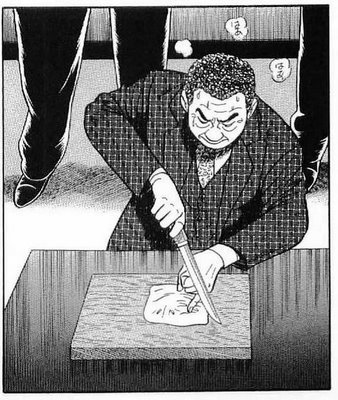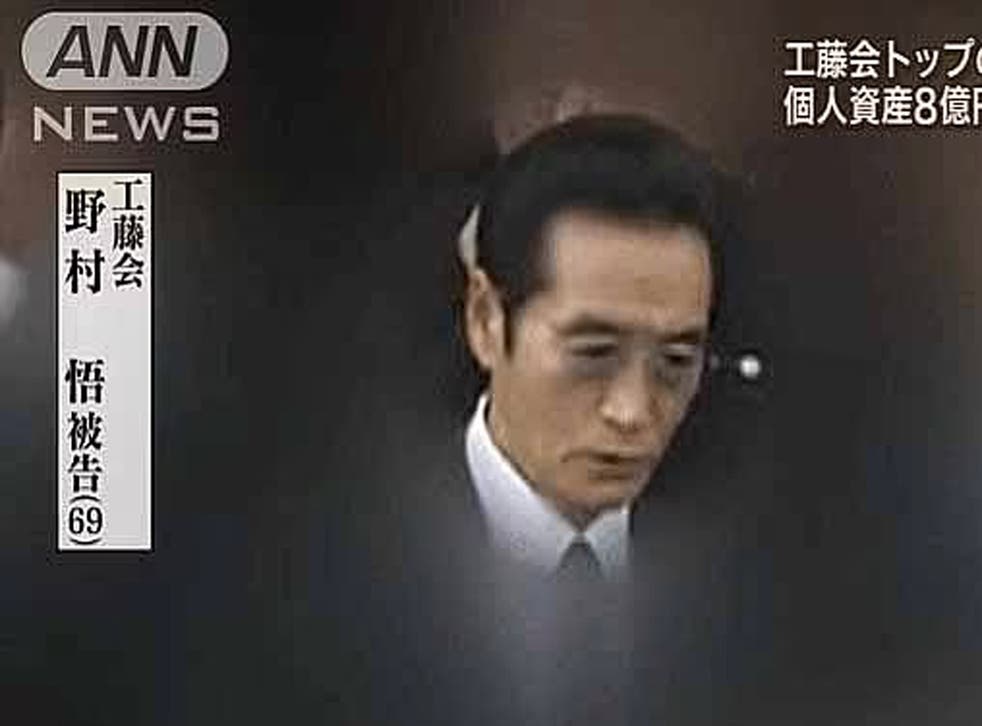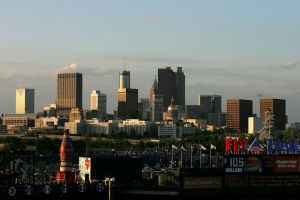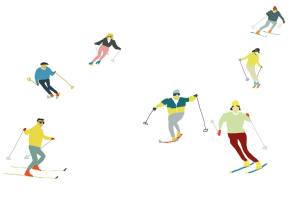For the first time in history, an organized crime ‘yakuza’ boss has been sentenced to death in a Japanese court. Satoru Nomura, head of the Kudo-kai group in Fukuoka, was found guilty of murder and three assaults after a trial held without a jury due to fears of possible intimidation. If a planned appeal fails, he will be hanged. We’ll find out about it after it happens.
What makes the case remarkable is that no evidence was presented linking Nomura directly with the crimes he was accused of. The judge nonetheless concluded that they took place on his orders and had the confidence to deliver the ultimate sentence. The case marks a new low in the seemingly terminal decline of the once fearsome crime syndicates.
At its peak in the 1960s, the yakuza could boast 180,000 members spread across more than 20 ‘families’. They flourished in the chaotic postwar years, controlling black markets, entertainment and gambling before moving into construction, real estate and politics. Japan’s eternal party of government, the LDP, was financed by notorious gangster Yoshio Kodama in its early years and as a sign of their influence thousands of yakuza were to be used as security for President Eisenhower’s planned visit to Japan in 1960. Allegations of ties between ministers and even prime ministers have surfaced periodically ever since.
The curious thing about the yakuza was that they have always operated, more or less, in plain sight. They have offices with nameplates and members with business cards, some of whom even register with the police. They regarded themselves as guardians of public order rather than criminals and have occasionally even volunteered in good works, such as helping with the relief effort after the 1995 Kobe earthquake and the 2011 earthquake and tsunami.
The traditional yakuza member was almost absurdly conspicuous, with dyed hair, shades, sharp suits, a well worked-on sun tan and a shirt (possibly Hawaiian) unbuttoned to expose some of their full-body hand-inked tattoos (excruciatingly painful to acquire, apparently). The distinctive appearance not only signaled physical toughness but also served as corporate branding, helping to give the yakuza a sort of marketable glamour.
To the general public though, the costume and the tattoos mark you out as a villain. This led to an amusing cultural faux pas during the 2002 World Cup when our own David Beckham, then idolized in Japan, took off his shirt after a match and displayed his own extensive body art, eliciting not a collective swoon but a collective gasp of horror. His reputation never fully recovered.
But this sort of reaction always suited the yakuza; as for the most part they have had little or no interest in the general public. Their core business: drugs, gambling, money-lending and prostitution, attracted those operating at the margins of legality themselves. As long as they confined themselves to that sphere they were allowed to operate with near impunity.
But the glory years are ancient history now. Membership numbers have been dropping for decades and are down to around 25,000. And those that do remain are increasingly older men, with more than half of yakuza made up of over-50s. The yakuza are no longer a visible presence on the streets, like the panda-eyed ultra-high-heeled Shibuya girls they vanished about a decade ago.
The conventional explanation for the long decline is that the yakuza overreached, moving away from petty street crime and into areas of corporate management that broke the unwritten agreement and threatened the business and political elites. This led to tough new anti-yakuza legislation in the early 1990s, targeting not only the gangsters but also anyone connected to them. Longer sentences and confiscation of assets put off potential recruits and led to a thinning of the ranks.
But it may be truer to say simply that the yakuza’s day has passed and their usefulness to the elites at an end. Some have argued that the original yakuza were a necessary evil, that some sort of extra-legal force capable of getting things done quickly was valuable in the desperate postwar period. The yakuza helped facilitate Japan’s reconstruction just as Commodore Vanderbilt built America’s rail network — by any means necessary. Had it all been left to the bureaucrats and done by the book, progress might have been far slower.

It has also been claimed that the gangs, with their hierarchical structure and strict codes of behavior (you really did risk losing your fingers if you transgressed) helped soak up extant criminality and regulate it. This was especially important in the hardscrabble postwar years when options for poor young men on the margins were severely limited. Without the gangs, those attracted to an outlaw lifestyle might have ended up as freelancers, menacing ordinary citizens to a far more serious degree.
But an advanced economy, a more stable society, modern technology, improved policing and greater opportunities for all have made the old-style crime networks largely redundant. The yakuza still exist and are still evil but, if they ever were, they are clearly no longer necessary.
This article was originally published on The Spectator’s UK website.


















